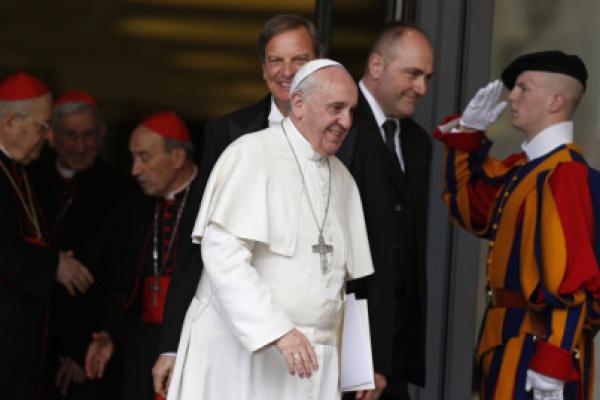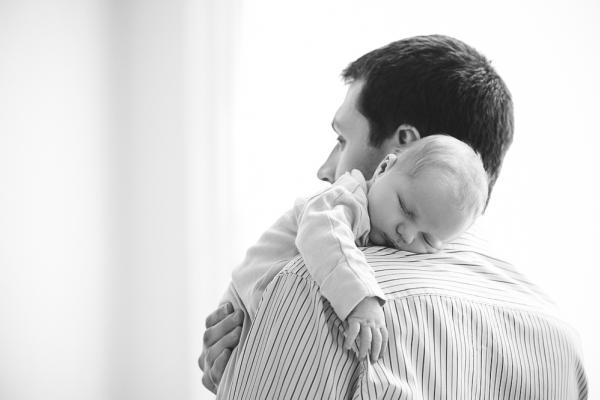In his strongest personal remarks yet on the clergy sex abuse scandal, Pope Francis on Friday asked forgiveness “for the damage” that abusive priests have inflicted on children and pledged that the Catholic Church “will not take one step backward” in efforts to address the crisis.
“I feel compelled to personally take on all the evil that some priests — quite a few in number, though not compared to the total number — and to ask for forgiveness for the damage they have done by sexually abusing children,” Francis said.
“The church is aware of this damage,” he said. “It is personal and moral damage, but carried out by men of the church. And we do not want to take one step backward in dealing with this problem and the sanctions that must be imposed. On the contrary, I believe that we have to be very firm. Because you cannot take chances with children!”
“You are not only a coward but a non-believer as well.”
It may not quite be at the level of Captain America’s vibranium shield, but my skin is a lot thicker than it used to be. When you start a blog that promotes something as insanely unorthodox as the idea that the author of Genesis 1-3 might have (like most other biblical authors) made use of a metaphor here and there, you come to expect that some fundamentalists are going to call Father Merrin and start reaching for the holy water.
It’s unfortunate — and, often, perplexing — but you learn to get used to it.
Even so, there are times I receive emailed messages like the one quoted above, and it hits like a punch in the gut. I know I should just ignore such trollishness. Usually I can. But not always.
Don’t worry, though. This is not a whiny column about how mean the conservatives are to us open-minded, forward-thinking progressives. Instead, it’s about how messages like this are helping me rethink almost everything I thought I knew about the Christian faith.
It started when the United States Supreme Court determined that corporations were people and, as such, had similar rights and protections as us oxygen-breathing types. And now, in another recent decision, the court has decided that people (individual human beings or corporations) have the right to donate to an unlimited number of political candidates — therefore removing the aggregate cap on total donation amounts — as such gifts should be protected as an exercising of free speech, as defined in the constitution.
So much for representative democracy.
It’s my understanding that the founders of our nation and the framers of our constitution held the notion of representative democracy fairly sacred.
New York Mets second baseman Daniel Murphy recently took some heat from a few peers of his in sports media for taking the first few games off of the new baseball season to be with his wife while she gave birth to their baby. In particular, former NFL quarterback Boomer Esiason said on the WFAN radio show that Murphy needed to “get his ass back to work,” and that Murphy's wife should have undergone a C-section before the beginning of the season so he would not miss any games.
This kind of language is insensitive enough, but it is especially shocking coming from Esiason, who is a father to a child with special needs himself. Boomer has since retracted his comments, apologizing not only for his insensitivity, but for dragging Daniel's personal life, and that of his wife, Tori, into the public conversation. But if anything good can come from this, it is that it has raised the issue of a father's role in the birth in the early months or years of his child's life.
Make no mistake: the Gospel is political.
Politics refers to “the affairs of the city” and “influencing other people on a civic or individual level.”
Throughout his life, death, and resurrection, Jesus is political. He influences people to live into the Kingdom of Heaven. For Jesus, Heaven is not essentially some place off in the distance where you go after you die. No, Heaven is a way of life to be lived right here, right now. We see this clearly in the prayer he taught his disciples:
Thy kingdom come, thy will be done on earth as it is in heaven.
When Jesus entered Jerusalem riding a donkey on Palm Sunday, he was performing a political act. But it was a political act unlike any other.
Boston’s Cardinal Sean O’Malley, the closest American prelate to Pope Francis, took nine other bishops to the Mexican-American border for three days of listening to the stories of people who are suffering from America’s horribly broken immigration system. The bishops celebrated a dramatic mass with hundreds of Mexicans, taking communion through slats in the security fence, and laid a wreath at the border commemorating the estimated 6000 people who have died trying to cross.
“We can no longer tolerate the suffering caused by a broken system,” the Cardinal said. “The suffering and death must end.”
When asked how important immigration reform now is to the Catholic Church, O’Malley replied, “It’s another pro-life issue.”
Indeed it is.
Washington, D.C.—The national “Fast for Families Across America” bus tour campaign ended their journey yesterday in front of the U.S. Capitol building on the National Mall where hundreds gathered in support.
The buses, which returned to Washington after covering more than 90 congressional districts during a seven week tour, joined a female immigration advocacy group, We Belong Together—Women for Commonsense Immigration Reform, whose members have been fasting and praying for the House to pass reform that’s needed to keep their families together.






